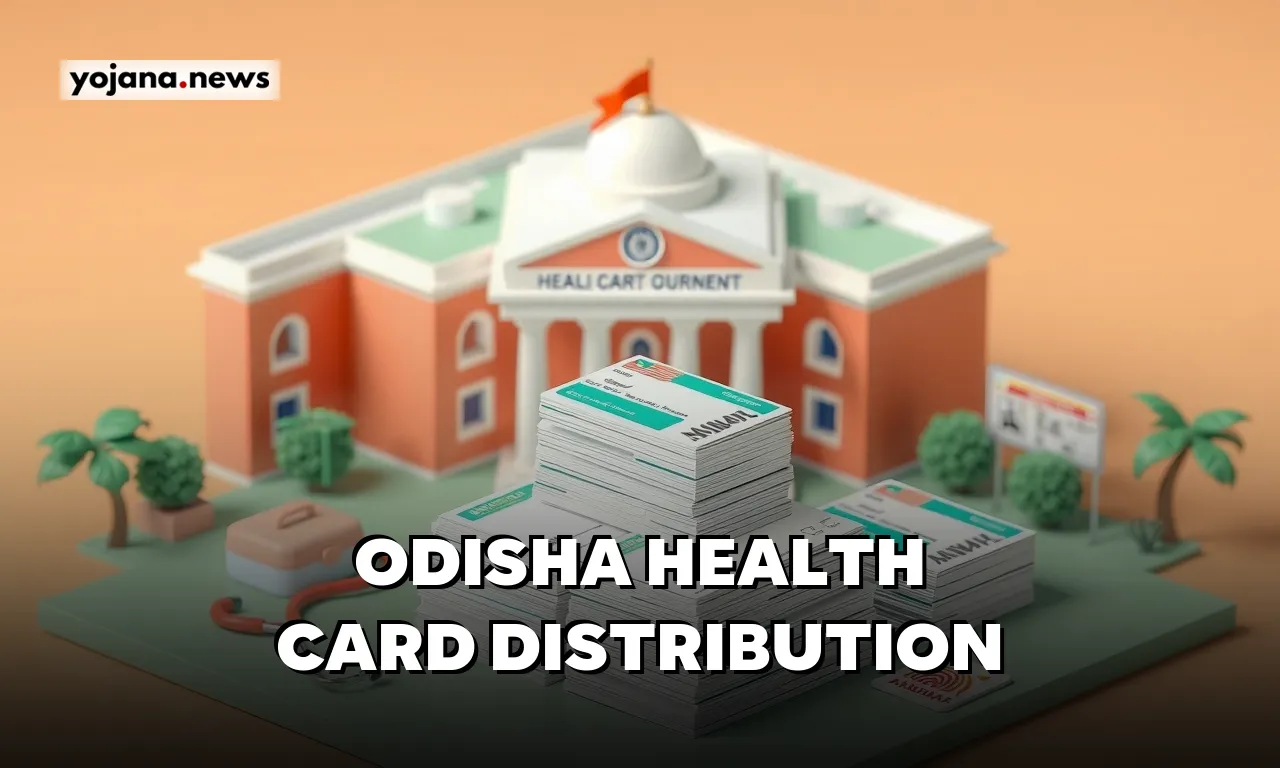- 3.52 crore people from 1.08 crore families in Odisha will receive health cards under the combined AB-PMJAY and GJAY schemes.
- 67.8 lakh families will be covered under AB-PMJAY, with the state government covering the remaining beneficiaries under GJAY.
- The integration of AB-PMJAY and GJAY aims to provide comprehensive health coverage, with a focus on streamlining beneficiary identification and healthcare package finalization.
Odisha government is set to distribute 3.52 crore health cards to its residents, marking a significant step in integrated healthcare coverage through Ayushman Bharat Pradhan Mantri Jan Arogya Yojana (AB-PMJAY) and Gopabandhu Jan Arogya Yojana (GJAY). This initiative aims to extend health benefits to a large portion of the state’s population, ensuring access to quality medical services.
The rollout of AB-PMJAY in Odisha is scheduled for next week, making it the 34th state to implement the scheme. This follows challenges in seamlessly integrating the state-funded GJAY with the national health scheme. Initially planned for Odisha Divas, the launch was rescheduled to accommodate the visit of Union Minister of Health and Family Welfare, JP Nadda. The combined schemes will likely be named AB-GJAY.
Comprehensive Coverage Under AB-GJAY Scheme
Under the new system, approximately 1.08 crore families, comprising 3.52 crore individuals,will be covered. As per the eligibility criteria, around 67.8 lakh families will be covered under AB-PMJAY, while the state government will extend coverage to the remaining beneficiaries under GJAY. This dual approach ensures that a broader segment of the population receives health benefits.
Key Features of the Integrated Health Schemes
- GJAY: A trust-based health assurance scheme that provides additional coverage of Rs 5 lakh for women beneficiaries.
- AB-PMJAY: An insurance model offering an equal annual coverage limit of Rs 5 lakh for both men and women.
The integration process involves TCS, the software developing agency, which is refining its interfaces in the billing and claims sections to ensure easy access for hospitals and monitoring agencies. Previously, identifying and categorizing beneficiaries without duplication, finalizing healthcare packages, and issuing a single health card posed significant challenges.
Streamlining the Schemes for Better Functionality
Under the finalized modalities, the state government will cover beneficiaries and packages not included under AB-PMJAY. Unlike the earlier Biju Swasthya Kalyan Yojana (BSKY), now renamed as GJAY, the state government will provide a health card to every individual covered under the combined schemes for better functionality. Additionally, elderly individuals above 70 years will receive a separate card under the Ayushman Vay Vandana scheme.
Distribution and Accessibility of Health Cards
The government is making significant investments to ensure every beneficiary receives a health card.
- Earlier, each family received two cards—one for men and another for women.
- Now, all 3.52 crore beneficiaries will receive an individual card.
- To date, 1.5 crore cards have been prepared for distribution, with one lakh cards being prepared daily.
- The government is spending over Rs 350 crore on the cards.
Health officials have assured that beneficiaries will not be deprived of health coverage due to delays in card distribution. By linking Aadhaar numbers to the scheme, individuals can access coverage by presenting their Aadhaar card at empanelled hospitals after the rollout. A dedicated team of IT professionals is available to resolve any issues.
Impact on Healthcare in Odisha
This initiative marks a significant advancement in healthcare accessibility in Odisha. By combining the resources and coverage of AB-PMJAY and GJAY, the state government aims to provide comprehensive health services to its residents. Issuing individual health cards will further streamline the process, making it easier for beneficiaries to access the care they need.

